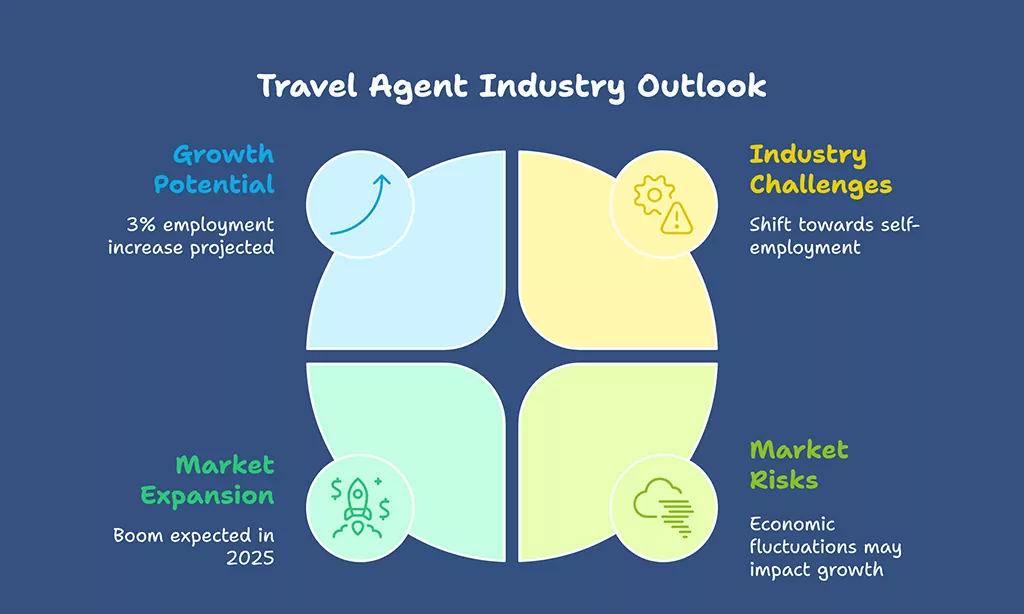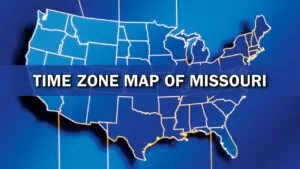In today’s digital age, the role of travel agents remains vital for many travelers seeking personalized service and expert guidance. Whether you’re considering a career as a travel agent or simply curious about the profession, understanding how much travel agents make is essential. Travel agents earn their income through various channels including commissions, service fees, and salaries, with earnings varying widely based on experience, specialization, and business model.
The average travel agent in the United States earns between $40,900 and $60,523 annually, though top performers can make well over $100,000 per year. This comprehensive guide explores the factors affecting travel agent income, salary ranges across different employment types, and strategies to maximize earnings in this dynamic industry.
How Much Travel Agents Make: Breaking Down the Numbers
Let’s explore what most travel agents earn and how experienced agents build a substantial income in the travel industry.
Travel agent earnings vary significantly based on several factors including employment status, experience level, specialization, and location. Here’s what the latest data reveals about how much travel agents make in 2025:
Average Salary Ranges
According to recent statistics, travel agent salaries in the United States fall within these ranges:
- The U.S. Bureau of Labor Statistics reports a median annual wage for travel agents was $47,410 as of May 2023
- Salary.com indicates the average annual salary is $60,523 as of March 2025, with a typical range between $52,668 and $68,362
- Jobted reports an average salary of $40,900 per year ($3,410 per month)
- LLCBuddy reports the average yearly wage for travel agents was $49,408 in 2025
These variations reflect differences in data collection methodologies, geographical considerations, and the diverse nature of travel agent employment arrangements.
Salary by Experience Level
Experience significantly impacts how much travel agents make:
- Entry-level travel agents (less than 3 years experience): $27,200-$29,450 annually
- Early career travel agents (1-4 years): Approximately $36,608 annually
- Mid-career travel agents (5-9 years): $36,100-$40,900 annually
- Experienced travel agents (10-20 years): $51,260-$56,632 annually
- Late-career travel agents (20+ years): $58,870+ annually
For self-employed travel agents with 3+ years of experience, earnings are even higher, with full-time hosted advisors earning an average of $67,256 and independently-accredited advisors earning $78,940.
How Travel Agents Earn Money

Understanding the various income streams available to travel agents helps explain the wide range in earning potential for those wondering how much travel agents make.
Commission-Based Income
The traditional and still most common way travel agents earn money is through commissions from travel suppliers:
- Airline commissions: These can vary between 0% and 22%, depending on whether flights are domestic or international
- Cruise commissions: Typically range from 10% to 16% of the total cruise fare
- Hotel commissions: Generally range from 8% to 15% on hotel bookings
- Tour and package commissions: Range from 10% to 20% or more for comprehensive tour packages
- Car rentals: Agents earn 8-10% commission on car rental bookings
- Travel insurance: Selling travel insurance policies can generate up to 40% in commissions
According to industry data, travel agents typically earn 5-10% commission on bookings for hotels, tours, and other travel services, with Fora Advisors earning an average of 12% commission.
Service Fees and Planning Charges
Many travel agents supplement commission income with service fees:
- Planning fees: Many agents charge for their expertise in planning and organizing complex trips. The exact amount varies by agent and by the itinerary’s complexity, but $250 per week of travel planned is a common starting point
- Consultation fees: Flat rates for travel expertise and itinerary development
- Service charges: Fees for specific services like booking assistance or itinerary modifications
Salary-Based Income
Employed travel agents working for agencies often receive:
- Base salary or hourly wages
- Potential bonuses based on performance (averaging $1,700 per year)
- Commission splits with their agency (averaging $4,200 per year)
- Profit sharing opportunities (averaging $1,380 per year)
- Benefits packages (for full-time employees)
Factors Affecting Travel Agent Income
Several key factors influence how much travel agents make:
Employment Type
Travel agent earnings vary significantly based on employment arrangement:
Employed Travel Agents:
- Receive steady income regardless of industry fluctuations
- Often have lower earning potential than self-employed agents
- May receive benefits like health insurance and paid time off
- Average salary: $47,410 (BLS data)
Self-Employed Travel Agents:
- Income varies widely based on client base and bookings
- Higher earning potential with successful business development
- Responsible for their own expenses and benefits
- Full-time experienced hosted advisors: $67,256 average
- Independently-accredited advisors: $78,940 average
- 25% of experienced agents earn over $100,000 per year
Specialization and Niche
Travel agents focusing on specific market segments often earn more:
| Specialization | Average Salary | Difference from Average |
| Luxury Travel Agent | $56,000/year | +38% |
| Corporate Travel Agent | $51,000/year | +24% |
| International Travel Agent | $47,000/year | +16% |
| Disney Travel Agent | $47,000/year | +14% |
| Independent Travel Agent | $45,000/year | +9% |
| Home Based Travel Agent | $39,000/year | -4% |
| Part Time Travel Agent | $26,000/year | -36% |
Host Agency Partnership
For self-employed agents, the choice of host agency significantly impacts earnings:
- Host agencies provide IATA numbers necessary for booking travel
- They offer varying commission splits (typically 70-30, with agents receiving the larger percentage)
- Agencies charge subscription fees (around $49 monthly at some agencies)
- They provide access to training, booking platforms, and marketing resources
Geographical Location
Travel agent salaries vary significantly by state. The top five highest-paying states for travel agents are:
- Nevada: $48,930
- Massachusetts: $48,720
- Washington: $48,480
- Minnesota: $48,240
- Louisiana: $48,130
Demographic Factors
Interesting demographic data about travel agents in 2025 reveals:
- 80.7% of the travel agent workforce were women, and 19.3% were men
- The most common majors for travel agents were Business, Social Sciences, and Communications
- The age group 50 to 54 years had the largest workforce among travel agents
Industry Outlook and Economic Factors
The travel industry’s overall health directly impacts how much travel agents make. According to recent data:
- The Bureau of Labor Statistics projects 3% growth in travel agent employment from 2023 to 2033, about as fast as the average for all occupations
- Approximately 8,200 job openings for travel agents are projected each year over the decade
- The global travel and tourism market revenue from online sales channels was estimated to be approximately $475 billion in 2025
- By 2025, the travel and tourism sector is projected to earn 73% of its revenue from online sales.
Daily Responsibilities of Travel Agents
Understanding what travel agents do helps explain the skills required to maximize earnings in this profession:
Core Responsibilities
Travel agents typically handle the following tasks:
- Research travel options for customers using vendor databases
- Discuss arrangements and costs with customers
- Advise clients about itineraries and travel plans
- Modify reservations based on client needs
- Visit popular destinations to gain firsthand knowledge
- Sell transportation, accommodations, tours, and attraction admissions
- Handle last-minute changes and cancellations
Specialization Options
Many successful travel agents specialize in specific types of travel or destinations:
- Cruise specialists
- Luxury travel advisors
- Adventure travel experts
- Destination specialists (e.g., Europe, Asia, Caribbean)
- Corporate travel managers
- Group travel coordinators
Maximizing Earnings as a Travel Agent
For those looking to increase how much travel agents make, several strategies have proven effective:
Building a Valuable Network
Your network significantly impacts earning potential:
- Connections with high-net-worth individuals can lead to substantial commissions
- A single $600,000 luxury booking could generate over $60,000 in commission
- Group contracts for destination weddings or corporate trips can generate over $300,000 in revenue
Increasing Efficiency
Operational efficiency directly affects earnings:
- Utilizing technology to streamline booking processes
- Developing systems to build, quote, and book trips quickly
- Accessing NET rates and adjustable commission sliders to maximize earnings
Focusing on High-Value Bookings
The type of travel booked significantly impacts commission amounts:
- Luxury travel typically generates higher commissions
- Group bookings provide volume-based revenue
- Corporate travel often offers steady, recurring income
Developing Expertise in Lucrative Niches
Specializing in high-value travel segments can substantially increase how much travel agents make:
- Luxury travel advisors earn 38% more than average
- Corporate travel agents earn 24% more than average
- International travel specialists earn 16% more than average
Implementing Effective Commission Structures
Travel agencies can implement various commission structures to motivate agents and increase sales:
- Tiered loyalty commission: Agents earn increased commission percentages based on repeat clients
- Experience-based rewards: Higher commissions for selling niche travel packages like culinary tours or wellness retreats
- Volume-based incentives: Increased commission rates for agents who exceed booking targets
Focusing on Preferred Suppliers
Successful agents increase their income by:
- Booking a majority of clients with a few suppliers that offer quality products and provide great support
- Becoming familiar with specific reservation systems and policies to work more efficiently
- Earning higher commissions or bonuses based on sales volume with preferred suppliers
Growing with Groups
Working with groups is a fantastic way to increase income as a travel agent:
- Instead of planning individual itineraries, plan one basic trip and watch commission multiply with each new traveler
- Each additional person becomes a potential travel client for future bookings or source of referrals
- Group travel can boost bottom line for years to come
Career Outlook for Travel Agents

Understanding the future prospects of the travel agent profession provides context for potential earnings:
Industry Growth Projections
The Bureau of Labor Statistics projects:
- 3% growth in travel agent employment from 2023 to 2033
- Approximately 8,200 job openings annually
- Growth rate on par with the average for all occupations
Changing Business Models
The travel agency industry continues to evolve:
- Increasing shift toward self-employment and hosted agency models
- Growth in specialized and luxury travel services
- Integration of technology with personalized service
- Rise in remote work opportunities for travel agents
Market Opportunities in 2025
According to industry experts, travel agents should head into 2025 confident about opportunities:
- The global travel industry is set for a massive boom in 2025, with millions of travelers planning trips worldwide
- Economic upturn and strengthening consumer confidence are expected to drive growth
- More travelers are seeking the reassurance that comes from booking with an agent
- Travelers are increasingly looking to professionals for inspiration
Technology and Automation
Travel agencies can leverage technology to increase efficiency and earnings:
- AI chatbots for 24/7 automated booking assistance
- Dynamic pricing tools to adjust pricing based on demand and seasonality
- API integration for transfers and activities with instant booking and real-time availability
- CRM and retargeting ads to maximize repeat business
Comparing Travel Agent Salaries to Similar Careers
When evaluating how much travel agents make, it’s helpful to compare with related professions:
| Career | Median Salary |
| Highway maintenance worker | $39,000 |
| Clergy member | $36,000 |
| Transit police officer | $38,000 |
| Bus driver | $34,000 |
| Funeral director | $31,000 |
| Travel agent | $31,000 |
| Firefighter | $29,000 |
| Administrative assistant | $29,000 |
| Postal service clerk | $29,000 |
| Family social worker | $28,000 |
How to Become a Travel Agent
For those interested in pursuing a career as a travel agent, here’s a basic roadmap:
Educational Requirements
- High school diploma or equivalent is typically required
- Additional education in tourism, hospitality, or business is beneficial
- Industry certifications enhance credibility and earning potential
Skills and Qualifications
Successful travel agents typically possess:
- Strong communication and customer service abilities
- Sales experience or aptitude
- Organizational skills and attention to detail
- Knowledge of geography and travel destinations
- Computer literacy and familiarity with booking systems
Entry Paths
Common ways to enter the profession include:
- Working for an established travel agency
- Joining a host agency as an independent contractor
- Starting an independent travel business with accreditation
The Business Model of Travel Agencies
Understanding the business model helps explain how much travel agents make and how agencies operate:
Commission Structure
Travel agencies often receive commissions and other benefits from providers:
- Hotel owners and tour operators typically pay higher commission rates
- Airlines typically pay little to no commission
- Customers are not usually made aware of how much agents earn in commissions
- A 2016 survey found that on average, 78% of travel agent revenue came from commissions and 22% from fees
Agency Types
Different agency models affect earning potential:
- Traditional brick-and-mortar agencies
- Online travel agencies (OTAs)
- Host agencies for independent contractors
- Consortium memberships that provide higher commissions and perks
Challenges and Opportunities in the Travel Agent Profession
The travel agent profession faces both challenges and opportunities that impact earnings:
Challenges
- Competition from online booking platforms (83% of US adults prefer to book travel arrangements online)
- Reduced or eliminated commissions from some suppliers
- Need for constant education about destinations and products
- Seasonal fluctuations in business
Opportunities
- Growing demand for personalized service and expert advice
- Increasing complexity of international travel regulations
- Rising interest in unique, authentic travel experiences
- Opportunities to leverage technology while providing human expertise
- The online travel market size worldwide was worth $432 billion in 2025
Takeaways
The financial viability of a career as a travel agent depends largely on individual factors including work ethic, business acumen, and specialization. While average salaries may appear modest compared to some professions, the earning potential for successful travel agents is substantial.
Self-employed agents with established client bases and specializations in luxury or corporate travel can earn well above average incomes, with top performers exceeding $100,000 annually. Additionally, the profession offers flexibility, potential for remote work, and the satisfaction of helping clients create memorable experiences.
For those passionate about travel and willing to invest in building a client base and expertise, the travel agent profession continues to offer viable and potentially lucrative career opportunities in 2025 and beyond. With the right approach, the question of how much travel agents make can have a very satisfying answer for those who excel in this dynamic field.
Whether you’re considering becoming a travel agent or looking to maximize your earnings in the field, understanding the factors that influence income can help you make informed decisions about your career path and business strategy.





























